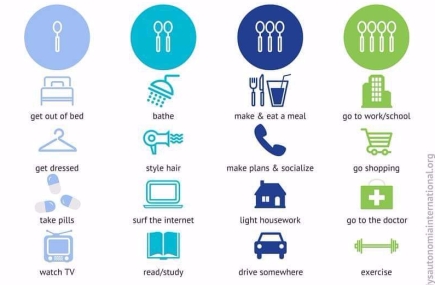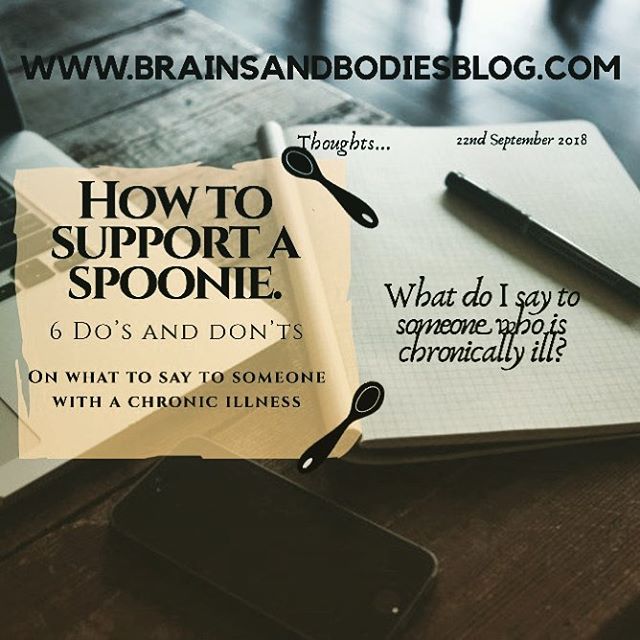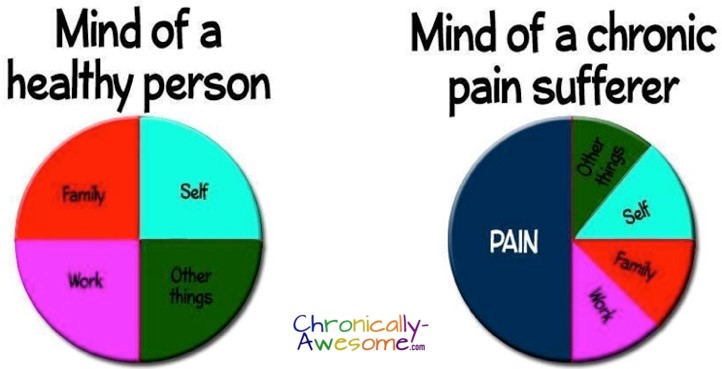If I was diagnosed with Ehlers Danlos syndrome from birth, I may have never of learnt what to say to a chronically ill friend. I know, it can be difficult to find the right words and come across sincere, especially when there are so many chronic illnesses out there. Examples include but are not limited to;
- Diabetes
- Ehlers Danlos syndrome
- Fibromyalgia
- Postural Tachycardia
- Mass Cell Activation Disorder
- Lupus
As I am immersing you into the chronic illness realm, I will remind you what a ‘Spoonie’ is. A spoonie is an umbrella term pioneered by Christine Miserandino. She is a sufferer of Lupus and used 12 spoons to simply explain the use of limited energy to a healthy friend. She explained how each action would require a certain amount of spoons and taking on to much would leave her short of spoons the next day. It was then the Spoon theory was born, with a ‘Spoonie’ being used to describe someone who is chronically ill.

Before we start, I don’t want you to punish yourself if you find you’ve been saying things on a regular basis that I’ve said to avoid. I actually made these mistakes when I spoke to my long-standing ill friends before I knew I had one. I will inform you on good and bad practices to support a spoonie, which in turn I hope will bring you closer together. The content will be a blend between how I gave support to others before I had a diagnosis of EDS and being on the receiving end of support once I got one.

6 Do’s and Don’ts
- Avoid…
“I understand how your feeling. Once, I had pain________ (Insert temporary pain i.e. nausea, headache, sprain)”.
Many fall into the mouse trap of associating someone else’s experience with their own to make sense of a situation. There is no doubt you have good intentions by making this type of statement. You are endeavouring to comfort your loved one by saying you know how they feel. However, this is likely to have a negative effect. A chronically ill individual is in pain all the time – for me it is just the level of pain that fluctuates. By affirming you know how they feel, you are assuming the level of pain you’ve experienced is the same.
In reality, it’s not.
There is no quick fix for chronic pain like there is for its offspring- temporary pain. Many conditions like Diabetes have to be consistently managed whilst others such as EDS are incurable.

1.Try saying…
“I am sorry to hear you’re unwell, is there anything I can do to help?”
We know you probably haven’t been in the other persons shoes. However, it is refreshing for a spoonie to hear someone is compassionate towards their illness. Don’t, get me wrong, compassion alone, can be frustrating because the ill individual may feel it doesn’t make their life easier.
By offering to help you can turn a doom and gloom day into a good one. You will have done your good deed for the day and removed some obstacles. If you know your loved one challenges – try proposing them specific help. By suggesting a specific thing/task, they are less likely to decline your offer, if it is something they need or completed.
2.No go…
“Woah, you look poorly today”.
Everyone has rough days, the chronically ill just have a few more pencilled in the calendar. When people point out you look terrible (even if you’re healthy) you will naturally feel embarrassed and self-conscious. In the past I said this numerous times because I wanted to check my friend was okay. However, this type of phrase airs different intentions. In truth, it is likely the spoonie has struggled to get out of the house to complete what is expected of them. Those will a long-term illness try the best they can to be seen as a person opposed to being defined by their illness.
 2.Better…
2.Better…
“Would it be okay if I popped in for a coffee or a movie later tonight?”
The chronically ill tend to be strong BUT stubborn. They don’t want Mr Illness lurking in their shadow waiting to creep up on them. Therefore, it is rare that they will request your help or suggest activities. However, the disabled want to be loved too. If you think they need cheering up- try!
They will be either elated that you recommended some down time or debating if they have enough energy to see you. By demonstrating you are keen to relax together, they are less likely to shut you down. It is better to give them a short-time and longer-time options if they are running low on energy, as they are able to pick what is best for them.
3.Caution…
“You look much better today. I take you’re feeling better”.
A spoonie hearing a statement like this can be just as disheartening as being told they look unwell. By saying something like this you are emphasising how terrible they looked previously. It will appear you are giving a back-handed compliment, making them uncomfortable. You should NEVER assume someone is healthy based on how they look because many are battling invisible illnesses and it can end up pushing them away.
3.Try this instead…
“You look good today. How are you feeling?”
Here, you are acknowledging the way your loved one looks may not match how he or she feels. By throwing in a question after you give them a compliment you are showing you genuinely care about them and that you are interested in understanding illness. A spoonie can feel on top of the world just by hearing their appearance is nice without an attached assumption.
After all, who doesn’t like a little self-esteem boost?
4.Avoid…
“It will get better in time. I promise”.
If you don’t know what to say the worst thing you can do is pretend their circumstances will improve. This is the most common thing I hear about my EDS. This can cause a chronically ill person to become defensive, and detach themselves from you because you don’t understand the ins and outs of their illness like they do.
 4.Better…
4.Better…
“I am always here for you” and provide hope.
Don’t underestimate the power of your presence. By reassuring someone who is chronically ill you are representing how they are loved by at least one person regardless of their illness. Giving hope without promises is effective in strengthening your bond. You can do this by; suggesting practitioners, support networks and/or reiterating how they conquered any health problems in the past. Just be careful not to recommend medication because what works for someone may not for another.
5.It’s an X from me…
“You’re so boring now. You never doing anything with me like you used too”.
You miss their company and want to ensure they live, life. However, by highlighting that he or she is unable to do activities or at least not as frequently as they use to can lead them to overthink and become depressed. The spoonie is fully aware that their illness will have flare ups and do not need reminders.
5.Try saying…
“Do you think you will be able to do ________ (insert something you used to do together) in the next week. I really enjoyed doing that with you”.
By removing the prediction they aren’t able to meet up with you, the spoonie has time to think about if they can manage it. Chances are they miss you too. However, don’t ask them to think about something too far in advance because a flare up can arise anytime.
6.Avoid…
“You can’t do that, you’re ill / claim you’re ill”.
It may be true someone with a chronic illness are not able to perform an action because their ill, unless they are child avoid this statement at all costs. Even if you’re looking out for them, for starters in discrimination. An adult is at an age where they are old enough to make their own decisions. Like anything, when someone is told they can’t do something – they want to do it more! If they do something that in turn causes more damage than good then they will appreciate you being there rather than being criticised for their error.
 6.An improvement…
6.An improvement…
“______ (insert activity), won’t that hurt your _______ (insert area(s) of the body)”.
“Cliff jumping. Won’t that hurt your joints?”
This was said to me, when I was in Spain. It made me think about the risks involved if I went through with the action opposed to doing it immediately.
So, there we have it guys. I hope my tips on how to support a spoonie will be useful whether you are currently supporting one or may need in future.
Thanks for reading,
Lots of Love,

Sharing is Caring
I would love if you shared this post to close the divide between spoonie’s and healthy people.
Have your Say…
Do you have any advice on how to support a spoonie – if so why not share them below?
Like what you see?
Join me on my health journey on social media;



I’ve never heard the spoon reference, but it makes sense! My cousin had Crohns so he gets this a lot since it’s one of those “invisible” illnesses. Sometimes it’s hard to know what to say so this is helpful!
LikeLike
Thanks for reading ! Yes some people don’t even know some illnesses are actually classified as illnesses like chrones and think it’s a life choice unfortunately xx
LikeLike
It’s funny how many chronic illnesses use spoons as a way to figure out what they can do in a day. I have Addison’s disease and we use the spoon analogy. I also have Ehlers Danlos but I am lucky to have very few issues with it! Thanks for sharing.
LikeLike
I know so many but it is a really easy concept to grasp with infographics 🙂 oh really that’s so lucky ! They say if it is diagnosed earlier on it can be better for care! That’s awful my brother has that I hope it doesn’t cause you to much pain x
LikeLike
Thank you for sharing this excellent advice – we all need to think before we speak and this is very helpful x
LikeLike
Thanks for reading Debbie 🙂 xx
LikeLike
I love this article. #6 definitely is not for me. If I’m going to do something willingly that “hurts” me, it is because I’ve made a conscience choice to do so. I know I will suffer the repercussions from said choice. I don’t care for others second guessing my decision because I can guarantee it was an extraordinary struggle in my mind and heart to get to the place of going outside my emotional and physical comfort zone to do whatever I’m am choosing to participate in that will cause me additional pain. Sometimes I just need to take one for the team and take my boys to a place I know there will be a lot of walking or sitting. I still want to be a great mom. It is just a knife in the chest when I hear someone say “Wont all that walking hurt you?” Yes. Yes Sally it will. Now zip it while I spend some quality time with my boys instead of parenting from the couch.
LikeLike
Traci I am sure you still are a great mother ! It is good you know your limitations and desires xxx
LikeLike
Great Article thanks for sharing 💕
LikeLike
Thanks for reading x
LikeLike
I actually have EDS and I have wondered if IC and EDS are somehow related. Nice article, thanks for sharing.
LikeLike
Hello yes they can be related mine is but not always! Many people with IC tend to have mast cell problems x
LikeLike
Fantastic post! I just shared to my entire podcast social media
LikeLike
Thank you! Xx
LikeLike
Great post, will reshare and add to my newsletter (achronicvoice) 🙂
LikeLike
Thanks so much x
LikeLike
Shared on Pinterest 🙂
LikeLike
Thank you x
LikeLike
Great examples! Definitely agree with the whole ““It will get better in time. I promise” – anything around it’ll get better/just get some sleep and you’ll be fine, etc etc tends to do a lot more harm than good. I already feel my BP rising! x
LikeLike
Haha I know I feel the same caz! I can rest so much but due to insomnia I never sleep! Xx
LikeLike
I go with more of a defunct battery analogy personally but I like the spoons one a lot!
I love the suggestion for number 3, drives me mad when people presume I’m better because I look okay.
Great read 🙂
LikeLike
Thank you I know it’s probably one of my biggest pet peeves 😦 xx
LikeLike